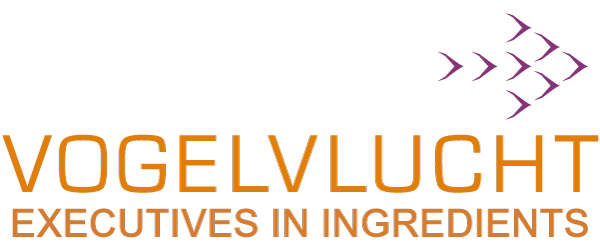“As Operations Manager I need to analyze and recognize the market developments and adapt the parties within our company to those. We need to connect with sales and customer care to find out the wishes of the customer. What do our clients desire and how can we respond to that? From my side, that requires sampling the right information and making sure that inside, we connect with each another.”
“With product development, we help with legislation”
What according to you is the most important development in the food industry?
One of the most important trends we see at Mérieux Nutrisciences is that companies increasingly work with plantbased protein sources. A few companies are ahead of the game and we see more and more consumer products entering the market. This development is going at a fast rate. It really is a big trend and ultimately important to eventually feed the world’s population in a sustainable way.
What does this development mean?
For a long time, meat replacement products only had a limited market share. There is a small group of consumers now willing to pay for it, but it’s taking over an increasingly growing shelf in the supermarket. The quality of these plantbased products is increasing. Thanks to their taste, texture and presentation, their resemblance to meat is very close. It becomes, due to the large offer and the diversity, a notable alternative for meat.
What does this development mean for your organization?
For us it in fact does not change much. The legislation in the Netherlands is very clear. Besides we are not specialized in one product group; we have a broad portfolio.
We do observe differences between meat and meat alternatives in the context of food safety. We know how meat reacts, but which microorganisms can be used to preserve meat alternatives? And what about the best-before date? Additionally, sensory aspects need to be evaluated differently.
On the one hand, we are dealing with a totally new product group, on the other hand, we have test and researched plantbased products like vegetables for a long time already. Thus we have the tools and expertise at hand to conduct research on these protein rich products.
It is interesting to see how our customers make use of our products and how for they are in their development. Some clients come to us with a clear vision and know exactly what they want tested. With other clients, we first need to uncover what matters to the client, then what is important. Sometimes, clients are lacking specific knowledge. Hence, our experts always engage in conversation with the client in order to find a meaningful solution.
What is the biggest challenge?
Meat replacing products are relatively new, but despite the latter, we barely encounter unexpected situations. In terms of food safety, in the largest sense of the word, we verify the possibility for collaboration. We want to support our clients as much as we can, now and in the he future, by offering valuable advice. We are continuously developing this skill.
What does this demand from you as Operations Manager?
As Operations Manager I have to recognize the market developments and ensure the parties within our company play in on the current trends. Formally, I’m responsible of labs and logistics. However, it’s an interplay between quality, changing legislation and innovation. We have to change gears between sales and customer care to discover the client’s needs. What do they desire and how can we adapt to that? This requires from me to have the right information available and to ensure connection between the employees of our company. By preparing a strategic image and showing how the market develops, we together can make an informed decision of which developments to apply as an organization.
That sounds proactive
Every company willing to survive and grow needs to find a good balance between push and pull. The food safety market is a relatively conservative one. After all you are dealing with legislation and certain techniques we apply are – so to say – as old as the microorganisms themselves. That is a given.
On the other hand, technology-wise, there are many possibilities. So, we need to explain to our clients everything that is possible. In the past, we tested the end products and the resources in order to find out what we needed to know, roughly speaking.
Now, prevention has become increasingly important, so that problems can be prevented. Preferably, you’d want to catch the pathogen at the door of the product location already, so it does not come your way. This saves quality profit and ultimately is a financial gain. In terms of prevention the possibilities are increasing with complete concepts, ideas and strategies.
What does that demand from you and your colleagues?
Knowledge becomes increasingly important. In the past, the client’s quality manager was the one owning the knowledge, however now, clients are asking more and more from us.
Partly for that reason, we founded the Food Science Center, to support clients with knowledge development.
When it comes to product development, we are already able to offer support on the surface level: this is legislation, it’s important to do the tests to ensure prevention.
On the backside we can help with data interpretation: what do we see, what is the cause and what can we do about it?
For us this means putting knowledge available, in order to be able to support clients where they need.
What is needed for that?
We need to import the right people. That is in fact also one of the biggest challenges of my job. I need to think very carefully what skills I seek for in an employer, while at the same time keep sure they fit within the team. The combination of our culture and someone’s personality makes it either a success or not. Like I said before: knowledge is very important, but if someone does not fit in the team, it does not work.
Sometimes an expert in his field will get hired and be accepted completely; even when his behavior is actually out of line.
The danger with this is it gives other people permission to also adapt their behavior to something that doesn’t fit the group.
When people are happy and satisfied, and they feel like they matter – which in our case means to contribute to food safety – people are more prone to help and collaborate. Initiatives develop in the workspace and are supported by the latter. This is what leads to success. In other words: it’s all about collaboration.


